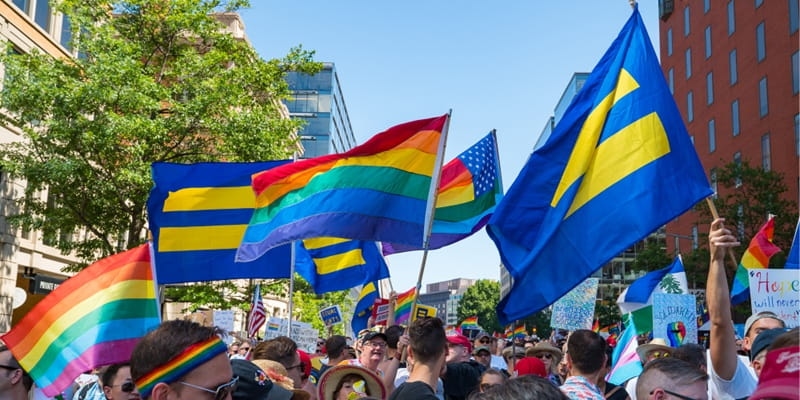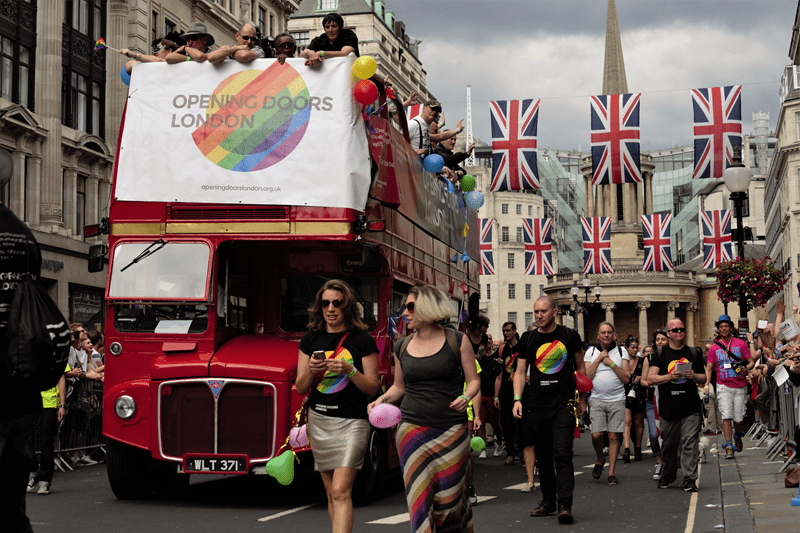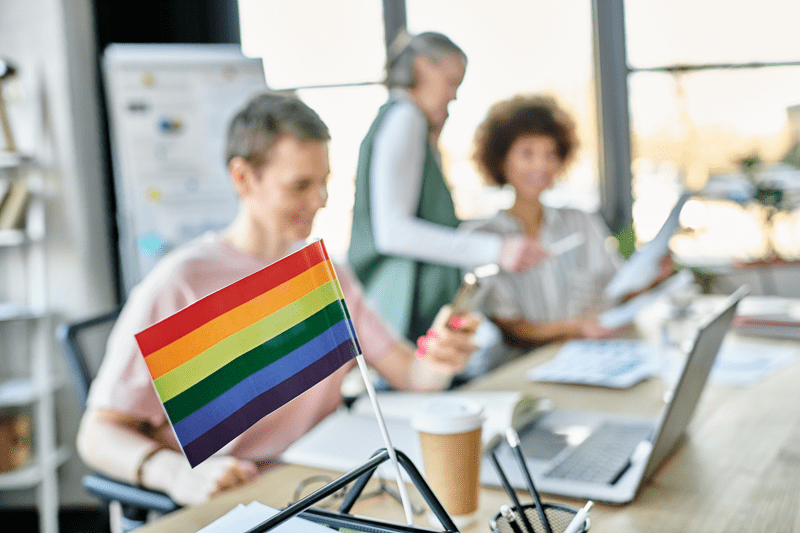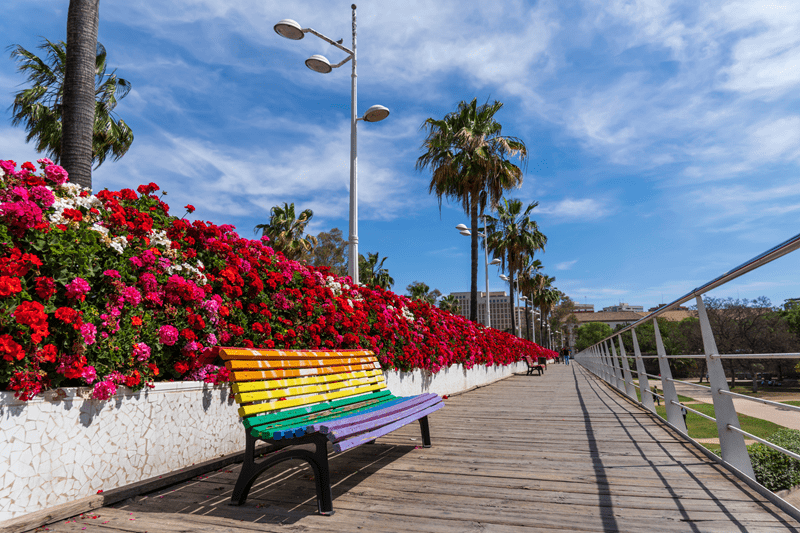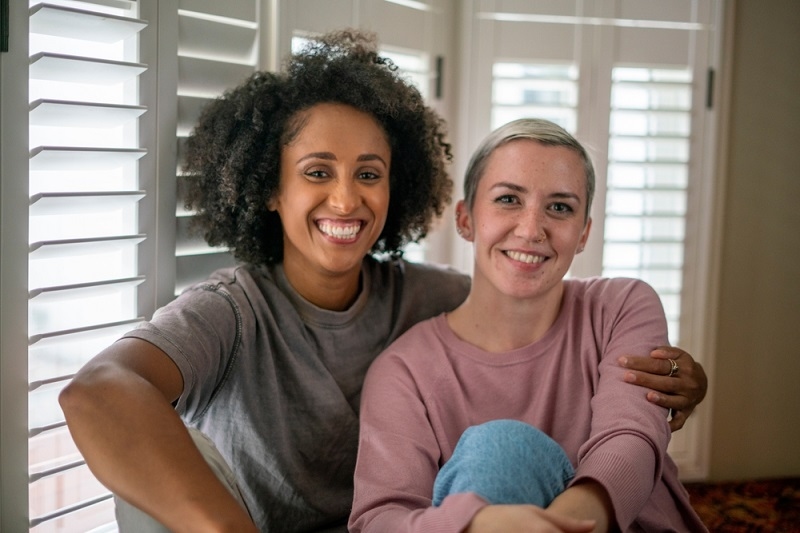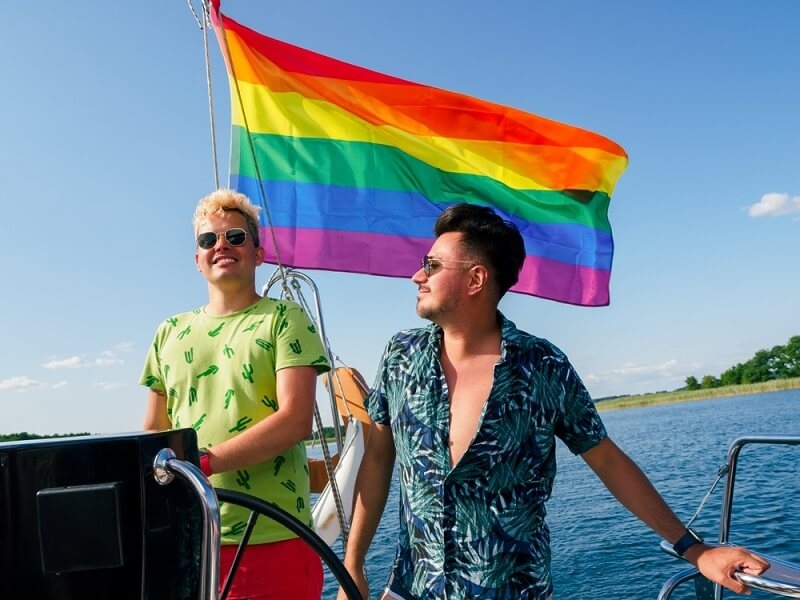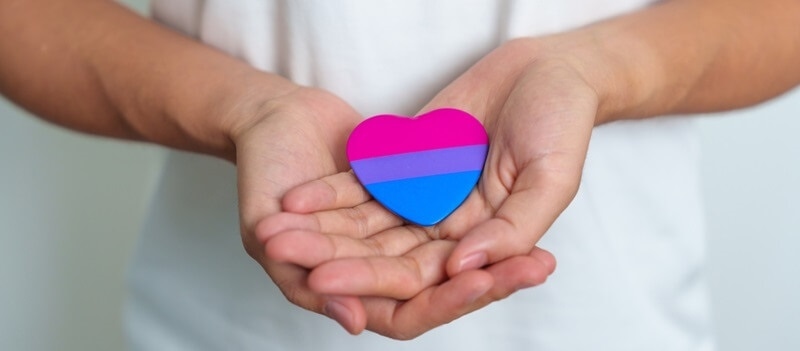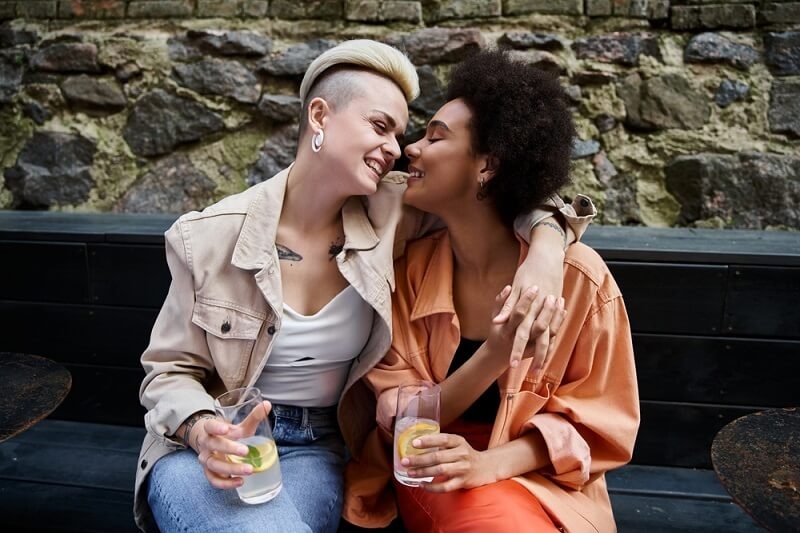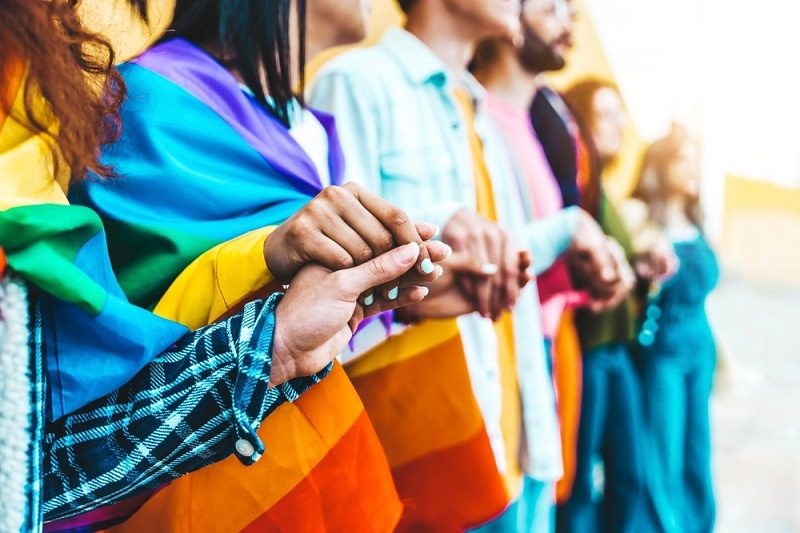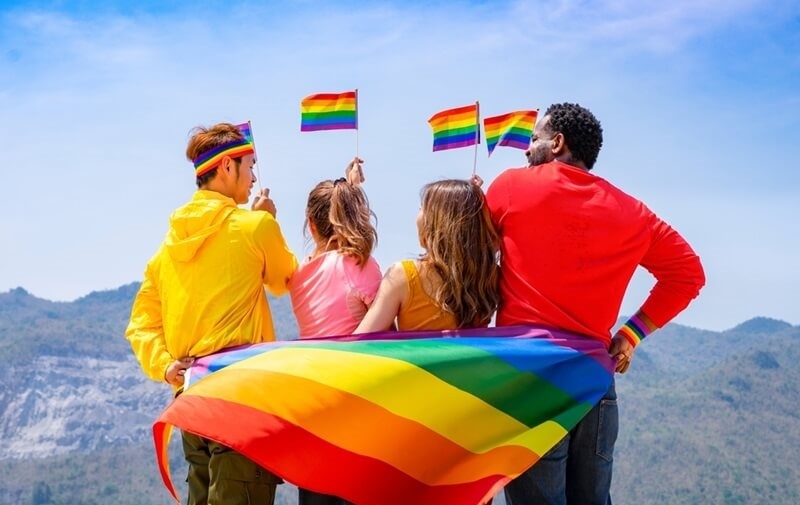Breaking Down the Stigma: Queerplatonic Relationships

Queerplatonic Relationships, also known as QPRs, are a type of relationship that exists outside of traditional romantic or sexual partnerships. They are characterized by deep emotional connections, intimacy, and commitment but without any romantic or sexual involvement. QPRs provide a way for people to form meaningful connections with others without adhering to societal norms or expectations regarding romantic and sexual relationships.
QPRs are particularly important for members of the LGBTQ+ community, who often face barriers to forming traditional romantic relationships due to discrimination and societal stigma. QPRs provide a safe and supportive space for individuals to form connections and find fulfillment without the pressure to conform to heteronormative relationship expectations.
In recent years, there has been a growing awareness and acceptance of QPRs within the LGBTQ+ community and society as a whole. However, there is still much work to be done to educate people on the validity and importance of QPRs and to break down the societal stigma surrounding non-traditional relationship structures.

History of Queerplatonic Relationships
Queerplatonic Relationships, or QPRs, have a long and complex history. The concept of non-romantic, non-sexual relationships between individuals of the same sex has existed in various cultures throughout history. However, it was not until the late 20th century that the term "queer platonic relationship" was coined to describe these relationships.
The term "queer platonic" was first used in 2010 by blogger Kaz, who described it as "a relationship that is more intense and intimate than is considered common or normal for a 'friendship', but doesn't fit the traditional sexual-romantic couple model." The term quickly gained popularity within the asexual and aromantic communities, who found it to be a useful way to describe their relationships.
The concept of QPR gained wider acceptance and understanding within the LGBTQ+ community in the early 2010s as people began to challenge the notion that romantic and sexual relationships were the only valid forms of intimacy. QPRs were seen as a way to form meaningful connections and build supportive communities outside of traditional relationship structures.
However, the idea of non-romantic, non-sexual relationships has been present in various cultures throughout history. In ancient Greece, for example, the concept of "philias" referred to non-sexual, non-romantic bonds between individuals of the same sex, such as between soldiers or philosophers. In Japan, the concept of "wakashudo" referred to relationships between older samurai and younger apprentices, which were based on emotional and spiritual connections rather than sexual attraction.
In the 19th century, close friendships between women were often romanticized and celebrated in literature and art. These relationships, known as "romantic friendships," were seen as a way for women to form meaningful connections and support each other in a society that placed strict limitations on their independence.
In the 20th century, the rise of feminist and LGBTQ+ movements brought a renewed interest in non-traditional relationships. The concept of "chosen families," where individuals create close bonds and support networks outside of biological families, became popular within the LGBTQ+ community. QPRs can be seen as an extension of this idea, as they provide a way for individuals to form deep emotional connections and build supportive communities outside of traditional relationship structures.
How to Know if You Are in a Queer platonic Relationship?
If you are wondering if you are in a queer platonic relationship, there are several signs that you can look for.
You have a deep emotional connection with your partner
In a queer platonic relationship, you have a strong emotional bond with your partner that goes beyond what you would experience in a typical friendship. You may feel a sense of companionship, comfort, and intimacy that you would not feel with just any friend.
You prioritize each other
In a queer platonic relationship, you and your partner prioritize each other's needs and feelings. You may have a deeper level of commitment to each other than you would in a regular friendship, and you may go out of your way to support each other.
You have a special language or inside jokes
In a queerplatonic relationship, you and your partner may have a special language or inside jokes that only the two of you understand. This can be a sign of a deep emotional connection and shared history.
You do not have romantic or sexual feelings for each other
In a queer platonic relationship, you and your partner do not have romantic or sexual feelings for each other. While you may experience some physical affection or touch, it is not driven by sexual attraction.
You may have other partners
In a queerplatonic relationship, you and your partner may have other romantic or sexual partners. However, this does not diminish the emotional connection that you share.
You have talked about the nature of your relationship
In a queerplatonic relationship, you and your partner have likely had a conversation about the nature of your relationship. You have discussed what you expect from each other, how you define your relationship, and what boundaries you need to establish.
Controversy on queerplatonic relationships
While the concept of queerplatonic relationships has gained acceptance in the aromantic and asexual communities, it is not without controversy. One of the main points of contention is the definition and boundaries of the relationship, which can vary widely depending on the individuals involved. Some people view queer platonic relationships as a way to avoid commitment, while others see it as a legitimate form of emotional connection.
Another source of controversy is the question of whether queerplatonic relationships can be considered a type of partnership or whether they are simply a type of friendship. Some people argue that the emotional and practical commitments involved in a queerplatonic relationship make it more than just a friendship, while others believe that the lack of romantic or sexual attraction means that it cannot be considered a partnership.
There is also a debate over the use of the term "queerplatonic," with some critics arguing that it is unnecessary to label a relationship that falls outside the boundaries of traditional romantic or sexual relationships. They argue that such labels can be limiting and that relationships should be defined by the individuals involved rather than by societal expectations or labels.
Despite these controversies, many people continue to find value in queerplatonic relationships as a way to form deep emotional connections that go beyond traditional friendships or romantic relationships. The concept of queerplatonic relationships also challenges the societal norms around what constitutes a valid relationship and provides a way for people to connect emotionally without feeling pressured to conform to traditional relationship expectations.
Supporting queerplatonic relationships
Supporting queerplatonic relationships involves recognizing and respecting the unique emotional connections and commitments that exist within them. Here are some ways to support queerplatonic relationships. If someone you know is in a queerplatonic relationship, it is important to validate and respect the relationship for what it is. Avoid questioning or minimizing the connection, and instead, acknowledge and honor the emotional bond that exists.
Take the time to learn about queerplatonic relationships and the experiences of those who are in them. This can help you understand and appreciate the unique dynamics of these relationships and can also help you avoid making assumptions or perpetuating stereotypes.
When talking about relationships, use inclusive language that acknowledges the variety of relationship types that exist. Avoid assuming that all relationships must be romantic or sexual, and instead, use terms like "partner" or "companion" to describe non-romantic relationships.
Work to promote acceptance and understanding of queerplatonic relationships within your community and society at large. This can involve challenging stereotypes and promoting inclusivity, as well as advocating for policies and practices that recognize and support a variety of relationship types.
If someone you know is in a queerplatonic relationship, listen to their experiences and offer support and validation. Recognize the challenges and complexities of these relationships, and offer support as needed.
Conclusion
Queer platonic relationships challenge traditional definitions of romantic and sexual relationships and provide an opportunity for individuals to connect deeply on an emotional level. While the concept is not without controversy, many people find value and fulfillment in these relationships. By supporting and validating queerplatonic relationships, we can promote greater acceptance and inclusivity of all types of relationships and help individuals form meaningful emotional connections that go beyond societal expectations.







